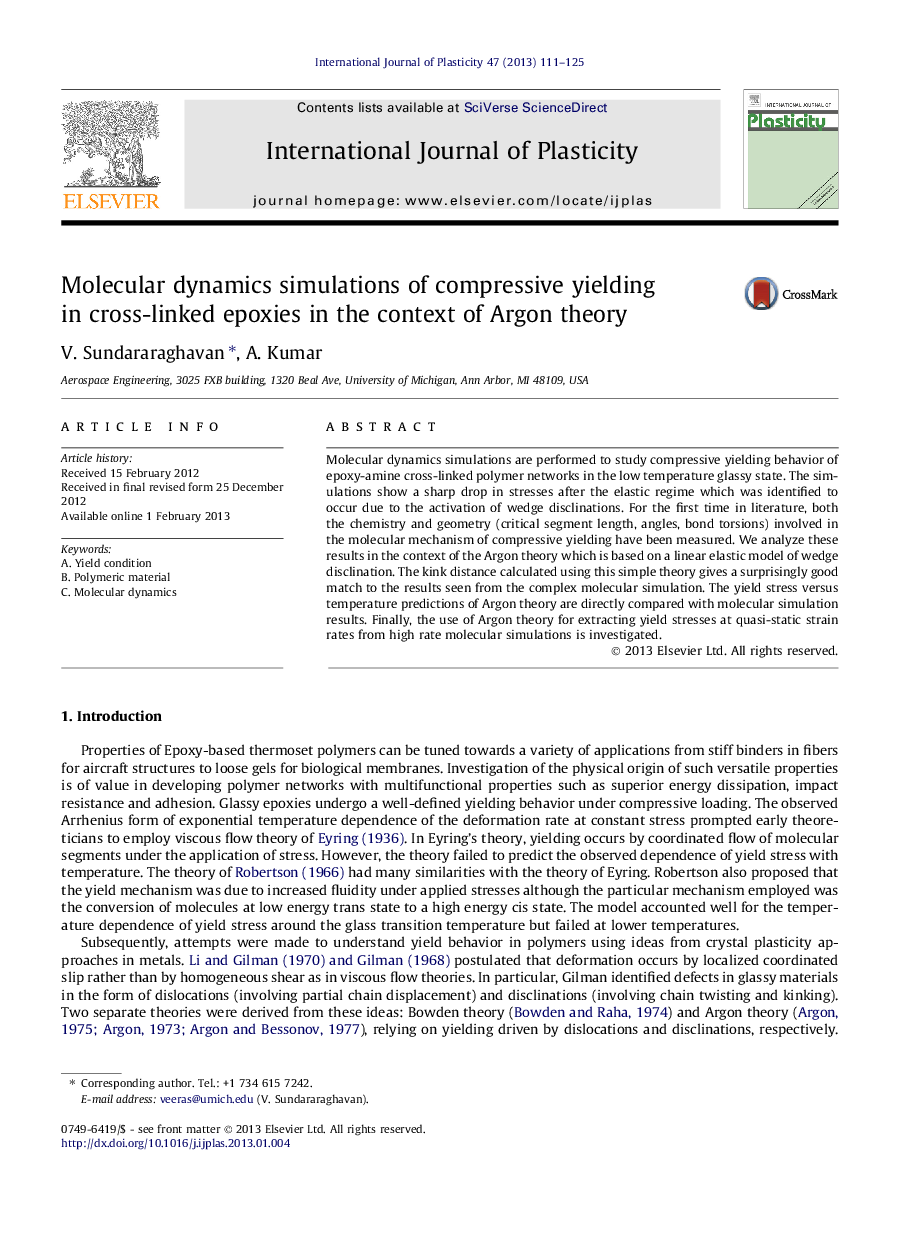| Article ID | Journal | Published Year | Pages | File Type |
|---|---|---|---|---|
| 786231 | International Journal of Plasticity | 2013 | 15 Pages |
Molecular dynamics simulations are performed to study compressive yielding behavior of epoxy-amine cross-linked polymer networks in the low temperature glassy state. The simulations show a sharp drop in stresses after the elastic regime which was identified to occur due to the activation of wedge disclinations. For the first time in literature, both the chemistry and geometry (critical segment length, angles, bond torsions) involved in the molecular mechanism of compressive yielding have been measured. We analyze these results in the context of the Argon theory which is based on a linear elastic model of wedge disclination. The kink distance calculated using this simple theory gives a surprisingly good match to the results seen from the complex molecular simulation. The yield stress versus temperature predictions of Argon theory are directly compared with molecular simulation results. Finally, the use of Argon theory for extracting yield stresses at quasi-static strain rates from high rate molecular simulations is investigated.
► Molecular dynamics (MD) simulations of cross-linked epoxy resins. ► Yield mechanism attributed to the activation of a wedge disclination. ► Geometry of the kink segment has been quantitatively measured. ► Yield stress versus temperature curve compares well with Argon theory. ► Method to extract quasi-static response from high strain rate MD simulation.
